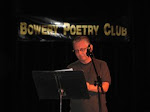Listen to "Steal the Person of the Heart"
Listen to "Lachrymal Clothes"
Listen to "Suburb Way"
Back by popular demand, pared down to 24 hot trax in 320KBPS, here.
I got the double CD from whence the 24 songs that made the final cut originally appeared at the Flushing Mall in, duh, Flushing. It was actually part of a four CD set; I posted the other two CDs--songs by legendary 30s singer Zhou Xuan--here. (I originally posted a 30-song selection back in May 2012, without a cover and in random order. I've gone back and spruced things up, including giving you the often oddly-translated English titles instead of the Chinese, as I had last time. Plus, c'mon, look at that cover.)
I had no idea how hard Yao Su Rong was going to rawk; in fact, Zhou Xuan held my attention for months before I really gave Yao Su Rong a proper listen. Part of the problem is that about a quarter of the songs in her collection, which is mostly made up of 60s and 70s classics, are absolutely godawful unlistenable atrocities from the 80s and 90s, even to a pop gourmand like me. (I took the liberty of removing those songs from the present mix; trust me, I did everyone a favor by doing so.)
Here's her bio from Last.FM:
Yao Su Yong (sometimes Yao Su Rong) was born in 1946. Her breakthrough came in 1969, with the title track to the movie “今天不回家” (Today I Won’t Come Home). That one song swept her into fame, the song being sung by young and old alike, securing her a much-coveted Hong Kong record deal with 海山 (Haishan Records), selling 600,000 copies.
Before that, she’d been singing songs for a while, a minor hit being a Mandarin-language rewrite of a Japanese popular song, “負心的人” (Cruel-Hearted Lover). No longer would she have to worry about success — instantly, she was selling out shows and getting invited to concerts all across the Mandarin-speaking world.
Certainly, her catalog is extensive, with over 200 recorded songs.
On August 18th, 1969, Yao Su Yong sang at a packed crowd in Kaohsiung, southern Taiwan. The audience was crazy about her, cheering madly every time she appeared on stage, and pleaded and begged her to sing some of her banned songs. Initially, she declined as politely as she could, saying that she was not permitted to perform those songs, and that she hoped the audience would forgive her. However, the requests wouldn’t stop, and eventually, she sang “負心的人”, hoping the popular appeal of her song would override any official censorship.
Unfortunately, the police guards stationed at the theater didn’t agree. They called her offstage and questioned her, asking her to record her playlist and make an official confession. Failing to produce a playlist, her singer’s license was revoked, “leaving no door or window” open. Since she was no longer allowed to perform in Taiwan, she turned to Hong Kong and Southeast Asia to continue her career.
Now, she lives a quiet life in Singapore. Though Taiwan officially invited her to perform at the 1998 Golden Horse Film Festival (the biggest movie event of the island, government sanctioned), she politely declined, saying that now that her life was peaceful and stable, she preferred to remain out of the limelight. However, her legacy lives on. “Jin Tian Bu Hui Jia”, the movie, was remade in 1996, but still used her original song. Her records continue to be very popular, and her status in the annals of Chinese oldies divas is well-secured.


































%20-18%2047.jpg)




























































.jpg)

































